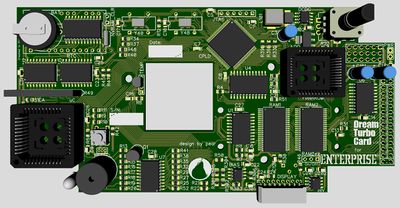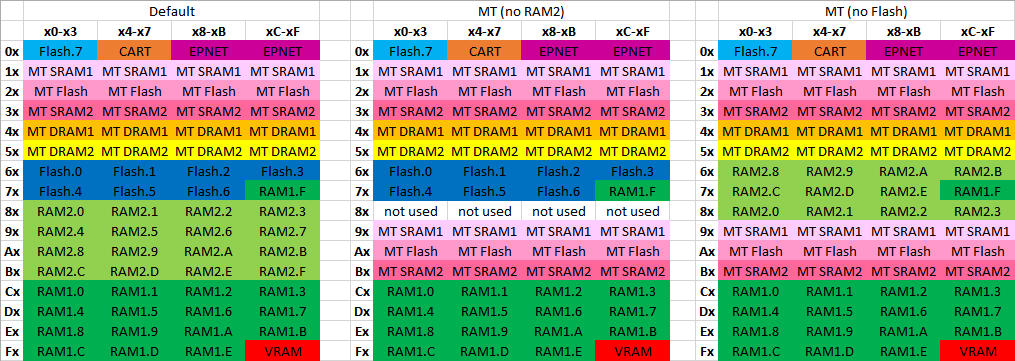Difference between revisions of "Dream Turbo Card by pear"
From Enterprise Wiki
m (→Specification) |
m (→Specification) |
||
| Line 13: | Line 13: | ||
* LCD or OLED display (2x16 chars), | * LCD or OLED display (2x16 chars), | ||
* RGB LED to signal by colors the selected CPU clock: | * RGB LED to signal by colors the selected CPU clock: | ||
| − | ** 2MHz <span style="color: # | + | ** 2MHz <span style="color: #08f">'''blue'''</span>, |
| − | ** 4MHz <span style="color: # | + | ** 4MHz <span style="color: #060">'''green'''</span>, |
** 6MHz <span style="color: #ff0">'''yellow'''</span>, | ** 6MHz <span style="color: #ff0">'''yellow'''</span>, | ||
** 8MHz <span style="color: #f60">'''orange'''</span>, | ** 8MHz <span style="color: #f60">'''orange'''</span>, | ||
Revision as of 07:47, 4 January 2018
Brief information
Internal memory card and switched clock generators.
Specification
- 1 MB SRAM, optionally 2 MB,
- 512 KB FlashROM, 8 banks of 64 KB with the option of individual switching off, EXOS in bank 7 (always on),
- RTC clock,
- NVRAM (battery backup),
- two-channel synchronized clock signal generator:
- system clock 4/8/12/16/20 MHz (2/4/6/8/10 MHz Z80 CPU),
- EXDOS clock 8/9.6/10/12/13.33/16 MHz
- LCD or OLED display (2x16 chars),
- RGB LED to signal by colors the selected CPU clock:
- 2MHz blue,
- 4MHz green,
- 6MHz yellow,
- 8MHz orange,
- 10MHz red,
- optional temperature sensor for NICK,
- configured by rotary encoder or by software.

